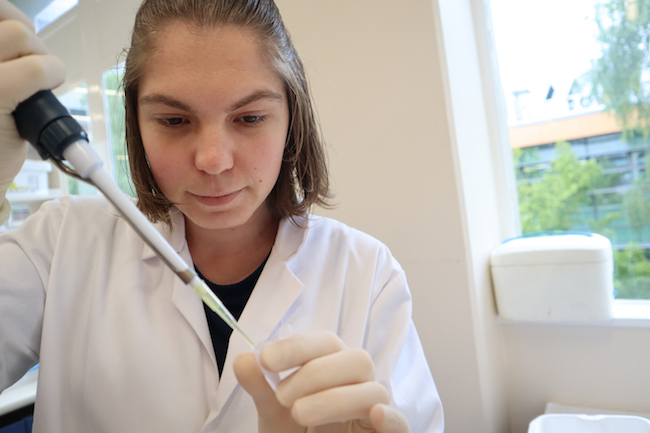Thursday 19 November 2020 2:36pm

Jennifer Palmer has been a standout student since way before she decided to take the path into biochemistry.
Among her many achievements, she was the winner of the 2019 Edson Prize for the top student in the 300-level Otago Biochemistry class, and the co-recipient of the 2019 Prince of Wales Prize, the University of Otago's premier undergraduate award.
Now she has won a prestigious Cambridge-Rutherford Memorial PhD Scholarship, which will pave the way for her to study neurodegenerative disease at Cambridge University in the UK.
In her PhD research, Jenni will be figuring out how autophagy (the body's way of cleaning out damaged cells) is regulated in the brain, and looking into ways of using autophagy to treat neurodegenerative diseases.
Jenni kindly answered a few of our questions about her future.
Whose lab will you be working in, and how did you get in touch with them?
I will be working in Professor David Rubinsztein's lab. I came across some of this lab's papers while doing some background reading for my honours project and was really excited about it. Eventually I built up the courage to send a cold email to David and we met over Zoom – that went really well and we've since met over Zoom a couple more times to develop the project and meet some of his lab members.
When are you planning to start your PhD, and what are you going to do in the meantime?
I'm aiming to start in the Michaelmas period, so starting 1 October 2021 – hopefully the COVID-19 situation will be somewhat improved by then. In the meantime, I am working as an Assistant Research Fellow in Associate Professor Steph Hughes lab. My current summer project is working on getting cerebral organoids started in our lab, and next year I'll be continuing my honours research about the regulation of lysosomal trafficking in neurons.
How do you feel about launching into a PhD, and where do you hope it might take you?
Nervous but very excited! I'm still naïve enough to want to become an independent researcher, with my own lab working on the biochemistry and cell biology of neurodegenerative diseases (one can dream, right!).
This PhD will expose me to some of the leading research in this field, with researchers investigating a wide variety of aspects of these diseases using a large range of techniques.
At the Cambridge biomedical campus there are groups investigating protein aggregation and fibril structures using cryo electron microscopy, or the cell biology of the unfolded protein response, autophagy, membrane trafficking, the DNA damage response, genomics of these diseases, etc. [There are] a wide variety of researchers united by the disease they are studying, rather than the technique they are using. That's something that really appealed to me and I think that variety of perspectives and connections would be hugely valuable for my research journey.